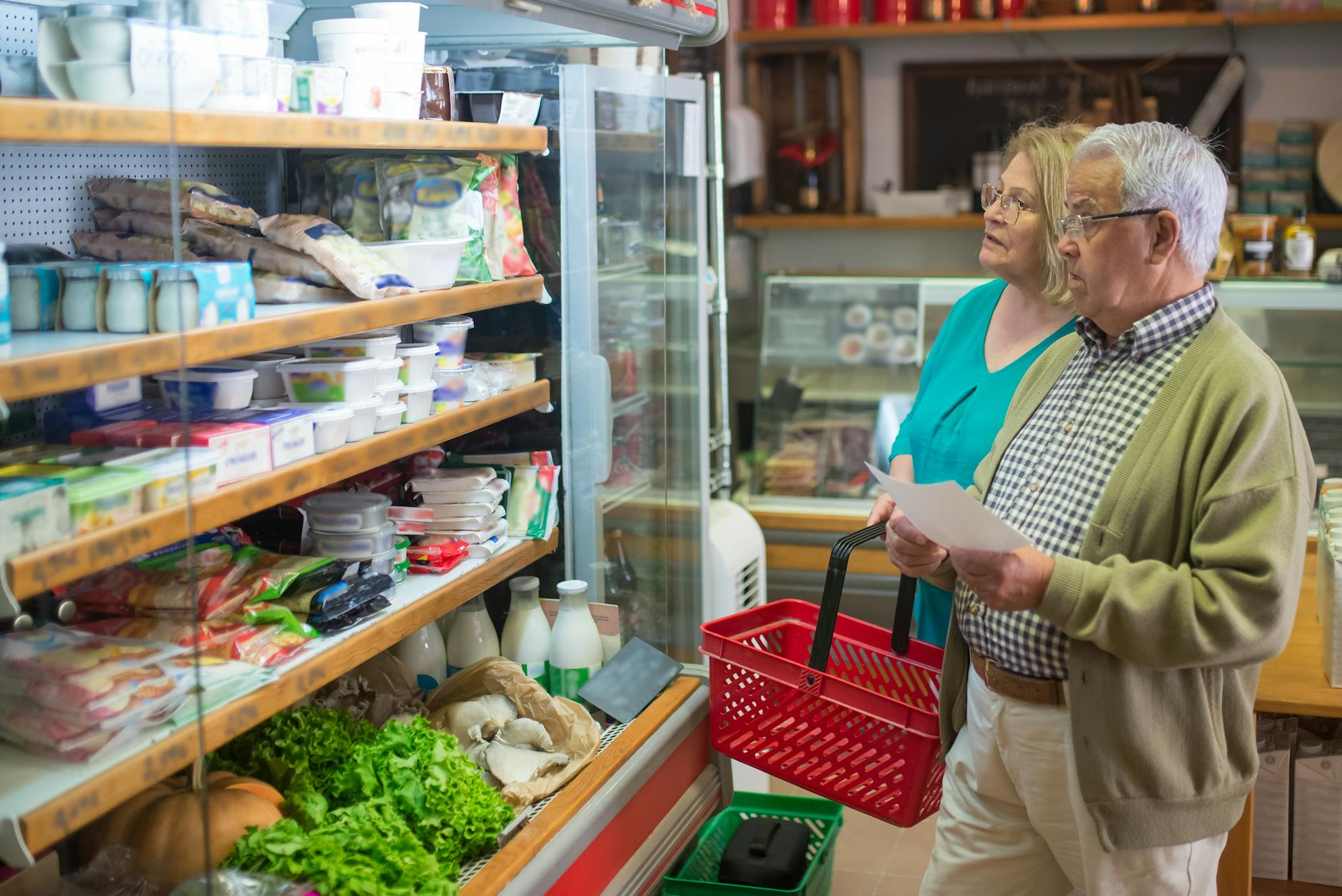
Grocery shopping is a routine task, but it can significantly impact your budget. Many people don’t realize how easy it is to overspend at the grocery store. Small habits, repeated week after week, can quietly drain your wallet. Whether you shop for a family or just yourself, understanding which grocery store habits predict overspending can help you take control. With a few simple changes, you may find it easier to stick to your budget and avoid unnecessary purchases.
Let’s look at the top 13 habits that often lead to spending more than planned. Are you guilty of any of these?
1. Shopping Without a List
Going to the store without a grocery list is one of the most common habits that predict overspending. Without a plan, you’re likely to grab items you don’t need or forget essentials, forcing another trip later. A list helps you stay focused and reduces impulse buys. Make a habit of planning meals and writing down what you actually need before heading out.
2. Shopping While Hungry
Walking into a grocery store with an empty stomach is a recipe for overspending. Hunger makes everything look appealing, even snacks or treats you’d normally skip. Studies show hungry shoppers buy more high-calorie and convenience foods. Eat a meal or snack before you go to avoid unnecessary purchases.
3. Ignoring Weekly Sales and Flyers
Many shoppers walk right past the weekly sales flyer or ignore in-store promotions. This habit can cause you to miss out on significant savings. Reviewing the store’s deals before shopping can help you adjust your list and take advantage of discounts.
4. Buying Pre-Cut or Pre-Packaged Foods
Pre-cut fruits, vegetables, and packaged meals are convenient, but they come at a premium price. If you regularly buy these items, you might be overspending. Taking a few extra minutes to prep your own produce can lead to big savings over time.
5. Falling for “Buy One Get One” Deals
BOGO deals are designed to get you to buy more than you need. While they seem like a bargain, they can encourage overspending if you purchase items you wouldn’t normally buy. Be selective and only take advantage of these deals when the items are on your list and will actually get used.
6. Shopping With Kids (or Partners Who Love Snacks)
Bringing kids or snack-loving partners can quickly add extra items to your cart. They may request treats or grab things you didn’t plan for. If you can, shop alone or set clear boundaries before you start. This helps you stick to your list and avoid overspending at the grocery store.
7. Not Comparing Unit Prices
Grabbing the first brand or the biggest package doesn’t always mean you’re getting the best deal. Failing to check unit prices is a habit that predicts overspending. Take a moment to compare the cost per ounce or pound. You might be surprised at which option offers the best value.
8. Shopping Frequently Instead of in Bulk
Making multiple small trips each week often leads to buying more than you need. Shopping in bulk or planning for longer periods can help you avoid extra purchases. Try planning your meals for the week and shopping once to cut down on temptation and save money.
9. Ignoring Loyalty Programs and Digital Coupons
Many stores offer loyalty programs and digital coupons that can save you money. Not taking advantage of these options is a missed opportunity. Sign up for your store’s rewards program and check for coupons before you shop.
10. Sticking to Brand Names Only
If you never consider store brands or generics, you’re likely overspending at the grocery store. Many store brands are made by the same manufacturers as the big names and offer similar quality at a lower price. Try swapping out a few items and see if you notice a difference.
11. Not Setting a Budget
Shopping without a clear budget makes it easy to overspend. Setting a weekly or monthly grocery budget helps you make smarter choices and keep spending in check. Track your receipts and adjust as needed to stay on target.
12. Ignoring Expiry Dates and Food Waste
Buying more than you can use before it goes bad is a costly habit. Food waste adds up quickly. Check expiration dates and plan meals around what you already have at home to avoid throwing money away.
13. Falling for Store Layout Tricks
Grocery stores are designed to encourage overspending. Essentials like milk and bread are often placed at the back, forcing you to walk past tempting displays. End caps and checkout aisles are stocked with impulse buys. Stay alert and stick to your list, even when the store tries to nudge you off course.
Building Better Grocery Store Habits
Recognizing which grocery store habits predict overspending is the first step to better shopping. By making small changes—like planning ahead, using coupons, and sticking to a budget—you can keep your grocery bill in check. These habits don’t require big sacrifices, just a bit more awareness and intention.
What grocery store habits have you noticed that lead to overspending? Share your experiences and tips in the comments below!
What to Read Next…
- 9 Shopping Habits That Retailers Exploit For Profit
- 5 Reasons You’re Overspending At The Grocery Store
- Spending Money Dilemma 7 Clues That You’re Wasting Your Extra Money On Bad Grocery Store Habits
- How Grocery Store Layouts Influence Your Shopping Habits
- 7 Clues On Your Grocery Receipt That Suggest You Might Be Overspending And How To Fix It
The post 13 Grocery Store Habits That Predict Overspending appeared first on Grocery Coupon Guide.







